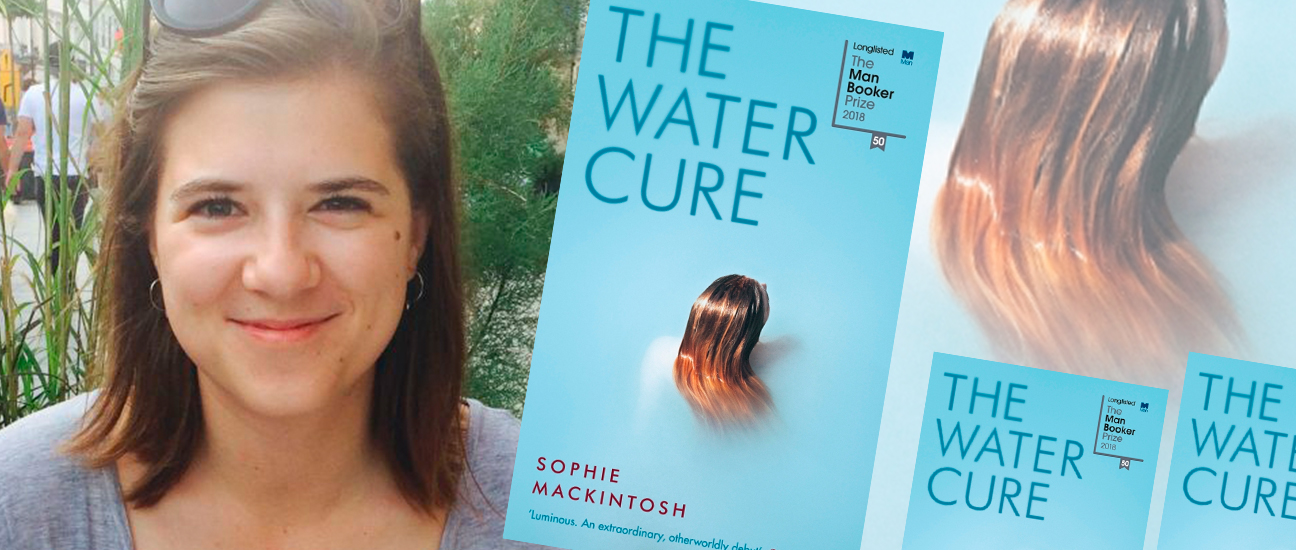- Home |
- Search Results |
- Hermione Thompson talks about The Water Cure
Hermione Thompson talks about The Water Cure
Meet Hermione Thompson, assistant editor at Hamish Hamilton. Her very first acquisition - Sophie Mackintosh's The Water Cure - has just been longlisted for the 2018 Man Booker Prize.

How did you first learn about The Water Cure? What was it about the book that grabbed your attention?
Sophie’s agent first mentioned it to me a full year before she eventually submitted it – so we had quite a lot of advance notice! I remember we were having coffee and she spoke briefly and beautifully about a strange group of women who live alone by the sea, and the men who come across the water to find them. The eeriness of that image, its sense of foreboding, lingered in my mind for months before I finally got to read the manuscript.
The Water Cure was your first acquisition as an editor. For people who might not know, what does the acquisition process involve?
A lot happens behind the scenes pre-acquisition: the editor reads the manuscript, of course, but then we always pass it to the wider publishing team too, to see whether others share our enthusiasm. The book will be discussed in a weekly acquisitions meeting, where we consider the likely market and how we would reach it, and afterwards we appraise the financial case in collaboration with sales, production and finance. With all this in hand, we’re ready to put together an offer to publish the book.
Once you have ‘offered’, it’s up to the agent to decide how they want to organise the competition between publishers. With The Water Cure, there were seven publishers bidding and it all moved pretty fast: just one week from first bid, through a couple more rounds of auction, meeting Sophie and then putting in our best offer, to her agent finally calling me with the news that we’d won. The speed of it was exciting but also pretty lucky for me because I was due to go on holiday the next day and I didn’t want to leave it unresolved!
Tell us about your relationship with Sophie, the author. How have you worked with her to edit the book?
Sophie is based in London which meant we could have face-to-face editorial meetings quite easily. It’s lovely to be able to do that, especially when you’re first getting to know a new author. But we went through many drafts of The Water Cure on a fairly tight schedule, so it wouldn’t have been practical to meet up every time. After the first couple of conversations, we did the editing over the phone and via email – usually I would send her written notes plus tracked changes on the manuscript, and then we would follow up with a call to discuss. Her US and Canadian publishers were also feeding into the conversation at every stage (both brilliant and wise readers and invaluable to the editorial process), so I had lots of calls and emails with them to keep everyone in the loop.
Where were you when you learnt about the long-listing? How did you feel?
I was by myself: it was a Friday and I was working from home on an edit. Sophie’s publicist called me and, once I understood what she was saying, I thought for a moment I might physically pass out. Of course we all knew the announcement was due imminently and so inevitably I had spent a lot of time in the preceding week thinking wistfully about it, and reminding myself that a Man Booker longlisting is not a reasonable thing to hope for.
After finding out, the first thing I did was call Sophie. She told me later that she almost didn’t pick up the phone – she thought I was calling to tell her off about something. When I gave her the news, she screamed out loud and then wept hysterically for ten minutes. Her boyfriend was quite alarmed until she’d calmed down enough to explain.
What’s next from Sophie? Is she writing another book?
She is! It’s still in early draft stages, I haven’t read anything yet, but I know she’s playing with ideas of maternity and cannibalism… She once hinted that the next novel will be ‘like Dept of Speculations meets Under the Skin’. So I’m expecting a very Mackintoshian blend of visceral body horror, tightly contained feminist rage and spookily pertinent dystopia. What more could you want?
What’s your prediction for this year’s winner?
Oh dear – I know a trick question when I see one. I’ve only read a handful from the longlist so far and am very much looking forward to working through the rest. The Mars Room is next on my pile and it sounds brilliant. But what I love about the list this year is how open and unpredictable it feels – the prize really could go to anyone. That’s such an exciting place to be in.